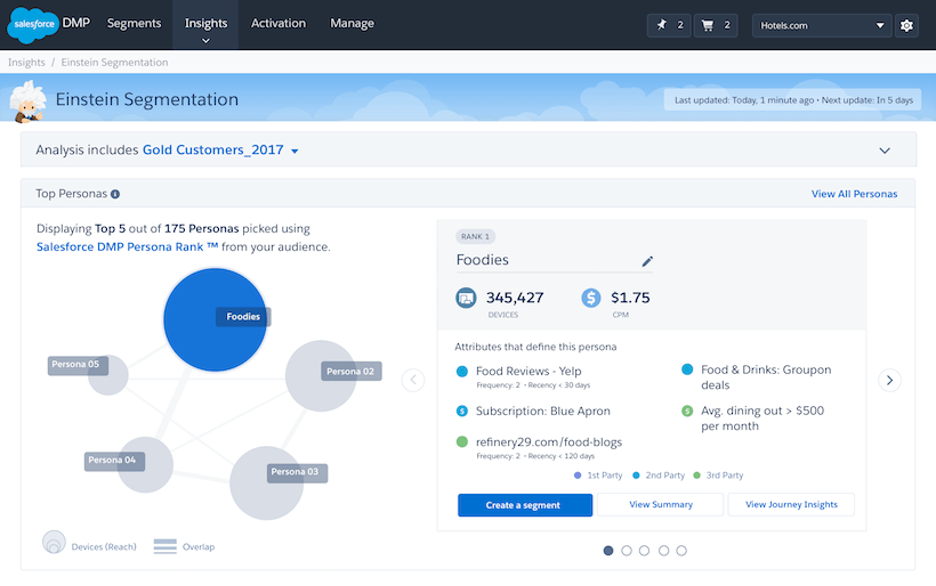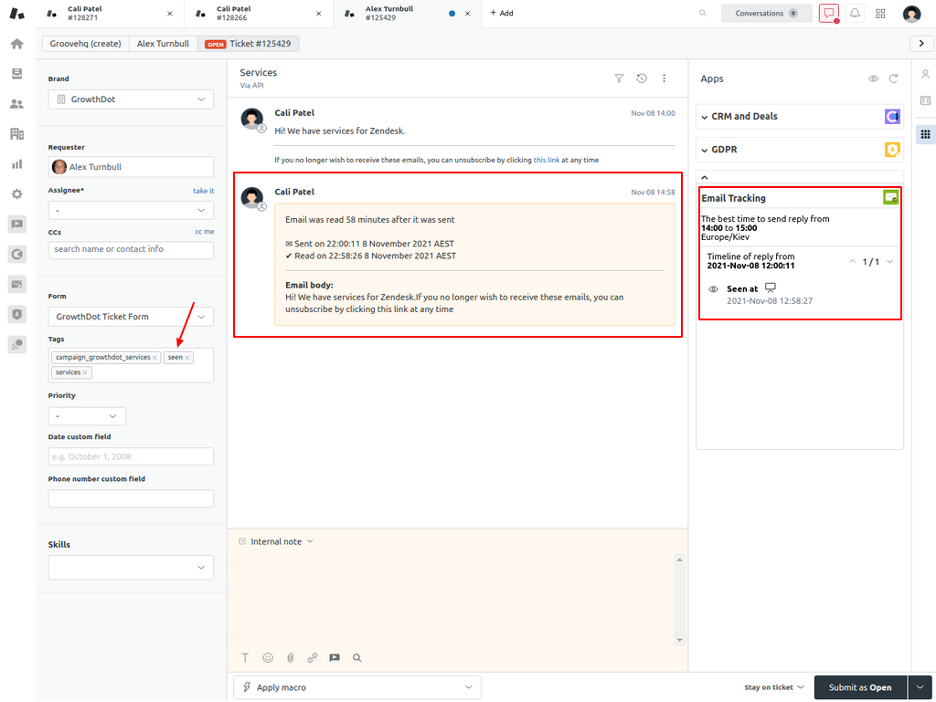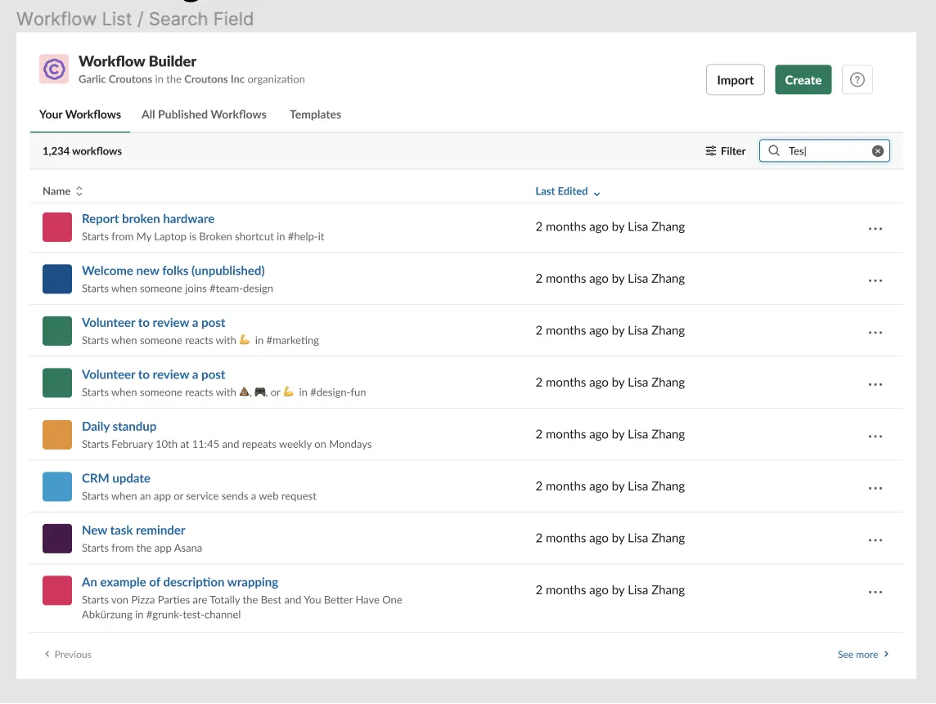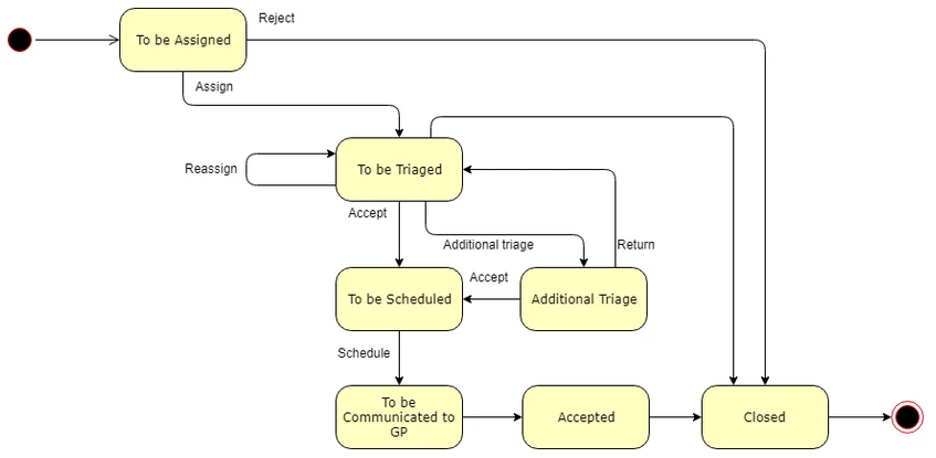MENU
Starting a Business
- Best Small Business Loans
- Best Business Internet Service
- Best Online Payroll Service
- Best Business Phone Systems
Our Top Picks
- OnPay Payroll Review
- ADP Payroll Review
- Ooma Office Review
- RingCentral Review
Our In-Depth Reviews
Finance
- Best Accounting Software
- Best Merchant Services Providers
- Best Credit Card Processors
- Best Mobile Credit Card Processors
Our Top Picks
- Clover Review
- Merchant One Review
- QuickBooks Online Review
- Xero Accounting Review
Our In-Depth Reviews
- Accounting
- Finances
- Financial Solutions
- Funding
Explore More
Human Resources
- Best Human Resources Outsourcing Services
- Best Time and Attendance Software
- Best PEO Services
- Best Business Employee Retirement Plans
Our Top Picks
- Bambee Review
- Rippling HR Software Review
- TriNet Review
- Gusto Payroll Review
Our In-Depth Reviews
- Employees
- HR Solutions
- Hiring
- Managing
Explore More
Marketing and Sales
- Best Text Message Marketing Services
- Best CRM Software
- Best Email Marketing Services
- Best Website Builders
Our Top Picks
- Textedly Review
- Salesforce Review
- EZ Texting Review
- Textline Review
Our In-Depth Reviews
Technology
- Best GPS Fleet Management Software
- Best POS Systems
- Best Employee Monitoring Software
- Best Document Management Software
Our Top Picks
- Verizon Connect Fleet GPS Review
- Zoom Review
- Samsara Review
- Zoho CRM Review
Our In-Depth Reviews
Business Basics
- 4 Simple Steps to Valuing Your Small Business
- How to Write a Business Growth Plan
- 12 Business Skills You Need to Master
- How to Start a One-Person Business
Our Top Picks
Salesforce vs. Zendesk Comparison

Table of Contents
In the best-run businesses, team members work from the same database. They understand their goals and receive ample support from management to help them succeed. Without this centralized structure, companies tend to be less efficient and organized, causing them to miss out on opportunities. CRM software is a crucial element of efficient organizations. It helps team members get – and stay – on the same page with enhanced communication and collaboration. However, choosing the right CRM is challenging. Many platforms exist with varying features, pricing, services and specialties.
We’ll take an in-depth look at two of the best CRM software solutions, Salesforce and Zendesk, to help you determine if either platform is a fit for your business.

Salesforce vs. Zendesk Highlights
Salesforce and Zendesk are higher-end CRM platforms. Here’s an overview of how they compare.
Criteria | Salesforce | Zendesk |
|---|---|---|
Starting price | $25 per user per month | $19 per user per month |
Free trial for paid plans | Yes (30 days) | Yes (14 days) |
Marketing and sales |
|
|
Omnichannel communications |
|
|
Workflows and automations |
|
|
Reporting and analytics |
|
|
Apps and integrations |
|
|
Who Is Salesforce for?
Salesforce is an ideal CRM solution for businesses that want to generate more sales leads and enjoy more successful lead conversions. Salesforce gives companies genuine control over how their marketing and sales teams operate. The platform combines a competent and intuitive marketing suite, an omnichannel communications tool, a companywide database, and first-class analytics tools and reporting capabilities. It’s highly flexible, with customizable workflows that improve staff efficiency and effectiveness. There’s also a massive selection of apps and plug-ins that can ensure Salesforce fits your precise business needs. Visit our complete review of Salesforce CRM for a more detailed overview of the platform’s features.
Salesforce’s vast product ecosystem includes specialized platforms that integrate with each other. To learn more, check out our Salesforce Marketing Cloud review (enterprise-level marketing) and Salesforce Service Cloud review (post-sale customer service and support).
Who Is Zendesk for?
Zendesk is a great option for companies that need better sales, marketing and customer service performance through team collaboration. The platform addresses the challenges of communicating in hybrid and remote work environments by providing a suite of excellent collaboration tools to help teams share information. This highly capable and user-friendly CRM also features a powerful multichannel marketing suite, an omnichannel marketing platform, advanced data analytics and flexible workflow automation possibilities. Our in-depth review of Zendesk CRM explains how its features can help organizations unlock higher revenues through improved collaboration.
Salesforce vs. Zendesk Comparison
Salesforce and Zendesk provide essential CRM features businesses need to improve sales, collaboration and overall efficiency. Here’s how they compare.
Marketing and Sales
Salesforce and Zendesk excel at helping companies generate more leads from their marketing campaigns and close more deals. Here are some highlights.
Salesforce
- Excellent email marketing: We appreciate how well Salesforce has integrated its email marketing suite into the CRM platform. The drag-and-drop editor makes it easy to create professional emails. It provides many customizable templates and allows you to send a generous 5,000 emails daily.
- Multichannel advertising: Reach out to customers en masse with social media marketing campaigns, Google Ads campaigns, text message marketing and more.
- Segmented marketing lists: We were impressed by how easy Salesforce makes it to add tags to customer records for market segmentation. You can easily segment your email lists and send targeted messages.

The Einstein AI customer segmentation tool makes it easy to send targeted email campaigns. Source: Salesforce
Zendesk
- Multichannel marketing: You can send 300 emails per day on Zendesk to help generate more leads. Text marketing is also straightforward. We like that you can send SMS-based customer surveys via the Proactive Campaigns app. Telemarketing teams can use an auto-dialer app like Dialfire to run outbound campaigns and win customers over the phone. Dialfire also lets you record and monitor live calls and provides a transcription-based call analyzer.
- Marketing lists: We liked Zendesk’s Smart List feature, which allows you to save targeted lists for later use instead of running the same search query whenever you want to launch a campaign.
- Lead enrichment: We were impressed with how easy it is to purchase decision-maker data from the Zendesk dashboard. Zendesk’s Enrich app is another standout feature. It conducts a web search to populate empty fields like phone number, social media profile, line of business and more in prospects’ database records.
Winner
Zendesk has some great features, particularly its data enrichment tools and smart lists. However, Salesforce gives businesses greater reach over more channels. Additionally, Zendesk’s standout features are also available on Salesforce with the right plug-ins.
Omnichannel Communications
Contact customers by phone, email and more via your CRM; it will log all interactions to help you provide better service.
Salesforce
- Built-in email client: We appreciate how straightforward Salesforce makes sending and managing customer emails. Choose from a range of customizable templates, save draft messages, and connect to existing Outlook, Gmail and other SMTP/IMAP accounts.
- Social media connectivity: Nurture new leads and get valuable client feedback through private messaging on Facebook, Instagram, Twitter, LinkedIn and more.
- All-round communication: You can also interact live one-on-one with clients by phone, SMS, MMS, WhatsApp and other private messaging platforms.
Zendesk
- Integrated email client: The Zendesk email client is smart; we like how it tries to match new email addresses to individual clients, leads or deals. It’s easy to use and connects to standard IMAP/SMTP accounts, as well as Gmail and Outlook.
- Messaging channels: We like that you can stay connected to prospects and clients with SMS and MMS text messaging, WhatsApp, Facebook, Twitter, Instagram, and more.
- VoIP with IVR: Talk, Zendesk’s VoIP platform, allows your agents to make and receive calls from the platform. You can upload menu trees using the excellent interactive voice response (IVR) feature so callers can reach the correct department.

The Zendesk email client makes email tracking effortless. Source: Zendesk
Winner
Salesforce is less reliant on third-party apps for omnichannel communications, so it wins this category. Built-in features are often easier to handle and less prone to breakdowns than third-party integrations.
Zendesk’s built-in IVR is unusual. However, most top CRM platforms include IVR plug-ins via their app stores.
Workflows and Automations
Automate repetitive tasks to boost productivity and save staff time.
Salesforce
- Flows: Flows (which replaces the previous tool, Princess Builder) greatly simplifies creating task-based workflow automations with its user-friendly drag-and-drop builder. For example, you can tell Flow to create a new record, alert a sales rep and send a welcome email simultaneously.
- Einstein Next Best Action: Einstein gives sales and customer service reps AI-powered contextual tips to help them close a deal or achieve a satisfactory resolution.
- Developer tools: We were impressed by the sandbox feature in the Salesforce developer area. It allows programmers to write and test code independent of a company installation. Salesforce also includes Apex triggers that should make development much faster.

Salesforce’s Flow tool helps you organize and create custom workflows. Source: Salesforce
Zendesk
- Better colleague collaboration: We really liked Zendesk’s Side Conversations and Light Agents tools. These functions allow you to bring in colleagues to help resolve customer queries quickly. Clients can see side conversation contributions but not light agent contributions.
- Handy automations: Set notifications and alerts when a trigger is activated. For example, direct a service ticket to a product specialist if the customer has purchased that product.
- AI automation: Zendesk’s AI implementation is impressive. Like Salesforce, agents can get contextual in-call advice. Zendesk can also talk to website visitors and add information and recommendations to a customer’s record.

This Zendesk healthcare referral workflow diagram shows how straightforward the workflow-building process is. Source: Zendesk
Winner
Salesforce wins this round. Its Flow tool and Einstein AI integration help businesses create advanced automations easily. However, Zendesk’s workflow automations tools are also impressive – the platform is catching up.
Sales reps appreciate how CRMs help them manage customers and leads and increase sales. Check out our review of Pipedrive CRM or Pipedrive comparison for a platform specifically aimed at sales teams.
Reporting and Analytics
CRM data analysis and reporting tools help identify top-performing marketing channels, sales reps, clients and more.
Salesforce
- In-depth online reports: Salesforce reports can help you better understand how traffic arrives at your website. Use cohorts analytics to see how people navigate your site, and view specialized reports to see where in the sales funnel they drop off. These insights will improve your site performance and engagement.
- Dashboard control: We like how you can tailor your Salesforce dashboard to view live reports on the specific data you want. Salesforce also offers many prebuilt and customizable templates for users.
- Quality data: We were impressed by Salesforce’s duplication cleansing tool and apps like Data.com Clean, which cross-references your data with external sources to check for accuracy.
Zendesk
- Information sharing: Zendesk allows you to build and share dashboards with other team members. You can add widgets to co-workers’ dashboards so they can monitor their performance against their KPIs.
- Better team management: We appreciate how easy Zendesk makes it for managers to see what’s in each rep’s sales pipeline. They can see what deals are expected and when they should arrive.
- Clear reports: View company performance via chart, table and database formats against all marketing, sales and customer service targets.
Winner
Salesforce and Zendesk can both analyze performance data and produce easy-to-digest reports across all areas of sales and marketing. However, Salesforce’s reporting and analytics functions are more comprehensive, so it wins this round. Still, we love Zendesk’s team management and information-sharing features.
Integrations and Apps
Get your CRM to do more by downloading plug-ins or connecting directly to its API.
Salesforce
- Massive app store: Salesforce’s app store is the Amazon of CRM app stores – there’s no one bigger. It also provides prebuilt templates, known as Bolts, and drag-and-drop automation builders called Flow Solutions.
- Salesforce exclusives: Download exclusive tools like Flow Builder, which can help you create custom automations.
- Developer zone: In addition to its excellent API, mentioned earlier, the Salesforce Developer zone provides 300 reusable and prebuilt features that can help you with development shortcuts.
Zendesk
- Large app store: We appreciate the wide selection of Zendesk apps and how easy it is to find apps via the app store’s search bar and 16 app categories.
- Wide range of themes: We like how you can build your own online self-service knowledge base for customers. Choose from 150 prebuilt custom themes to get it looking and behaving how you want.
- API links: Link to your other business apps via Make and Zapier, and use the extensive API documentation on Zendesk too. Be mindful of the extra charges if you go over your monthly API call limit.
Winner
Salesforce wins this round because of the sheer quality and quantity of apps and other plug-ins it offers; the Flow Builder is particularly impressive. Still, Zendesk’s store is notable – it’s one of the biggest CRM plug-in stores in the world.
Pricing
Salesforce and Zendesk are market-leading CRMs at the higher end of the price scale. Here’s how they compare.
Salesforce
Plan | Price | Features |
|---|---|---|
Essentials | $25 per user per month (up to 10 users) |
|
Professional | $75 per user per month | All Essentials features, plus:
|
Enterprise | $150 per user per month | All Professional features, plus:
|
Unlimited | $300 per user per month | All Enterprise features, plus:
|
Salesforce is one of the most expensive CRMs around. Still, its flexibility and customizability make it a market leader. You can opt for the Essentials plan on a month-by-month basis, but all other plans require an annual contract.
Note that the costs listed above can go significantly higher as you add plug-ins and additional features. It may take some research and calls to determine your actual costs. We like that Salesforce offers a free 30-day trial so you can put the system through its paces.
Zendesk
Zendesk Sell is for sales and marketing teams, while Zendesk Suite is for support teams. Zendesk’s two products integrate perfectly, and many customers opt for both. Costs are as follows:
Zendesk Sell
Plan | Price | Features | Storage limit |
|---|---|---|---|
Sell Team | $19 per user per month |
| 2GB per user |
Sell Growth | $55 per user per month | All Sell Team features, plus:
| 5GB per user |
Sell Professional | $115 per user per month | All Sell Growth features, plus:
| 10GB per user |
Sell Enterprise | Call for quote | All Sell Professional features, plus:
| Varies |
Zendesk Suite
Plan | Price | Features |
|---|---|---|
Suite Team | $55 |
|
Suite Growth | $89 | All Suite Team features, plus:
|
Suite Professional | $115 | All Suite Growth features, plus:
|
Suite Enterprise | Call for quote | All Suite Enterprise features, plus:
|
Zendesk is mid-tier in terms of pricing; when bundled at the higher tiers, it’s similar in cost to Salesforce. Zendesk offers a 14-day free trial to test the product. You can pay annually and monthly at all subscription levels, but you’ll pay around 20 percent more than the rates listed here if you opt for monthly payments.
Winner
Zendesk wins for its flexible billing options across all tiers. However, there’s not that much difference in price between the top Salesforce plans and higher combined Sell and Suite levels.
Salesforce vs. Zendesk Summary
While Salesforce can be adapted to just about any business use, Zendesk’s features are perfect for better internal collaboration.
Salesforce is better for companies that want better performance from their sales and marketing teams.
Salesforce boasts a unified and extendable multichannel marketing suite, omnichannel communications hub, and superior reporting and analytics. If you want more, its flexible workflow automations will save your sales and marketing staff time they can spend on more productive and creative tasks. You can adapt the platform to your business even further with apps, Flows and API integrations. Salesforce gives you a clear view of your sales process and marketing performance and provides the tools to boost performance further.
Zendesk is better for businesses that want their teams to work together better.
When sales, marketing and customer service teams collaborate, productivity soars and results improve. Improving collaboration and communication is even more critical as hybrid and remote teams increase. Zendesk’s collaboration tools are excellent and integral to this highly capable, user-friendly powerhouse CRM. Your teams can create, launch and monitor campaigns; track performance; and use Zendesk to set and achieve goals.
FAQ
Zendesk makes it easy for sales, marketing and customer service teams to work more effectively together. You can adapt Salesforce to do the same with its wide range of apps and plug-ins.
Salesforce is the market-leading CRM; it offers maximum flexibility to clients thanks to its built-in features and wide range of plug-ins. Zendesk is also a very capable platform but has less functionality than Salesforce. However, many businesses don’t need a CRM as powerful as Salesforce.
Choose Salesforce over Zendesk if you want the highest level of control possible over your sales and marketing teams. Choose Zendesk if you don’t need Salesforce’s power and prefer to focus on excellence across your sales, marketing and customer service teams.
Salesforce does not use Zendesk, but you can link your Zendesk platform to Salesforce. This could be a great solution for companies running on Salesforce products that want to access Zendesk’s excellent sales, marketing and customer service functionality.

